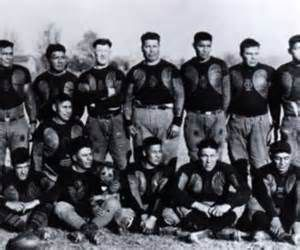For many couples, self-defense is a shared concern. As threats can come from any direction, there's an advantage in having a partner who's equally equipped and ready. Here's an article for couples who opt for armed defense. The focus is on crucial training strategies and tactical considerations for ensuring safety.
1. Foundation: Communication & Coordination
a. Verbal & Non-Verbal Signals: Develop a set of discreet commands or signals for different scenarios. This can include codes for 'draw a weapon,' 'retreat,' 'stay low,' etc.
b. Situational Awareness: Always stay alert to the environment. Couples should be conscious of each other's position and field of view to prevent friendly fire.
2. Basic Firearm Safety
a. The Four Golden Rules:
- Treat every firearm as if it's loaded.
- Never point the firearm at anything you're not willing to destroy.
- Keep your finger off the trigger until you're ready to shoot.
- Be sure of your target and what lies beyond.
b. Secure Storage: When not used, firearms should be stored safely, preferably in a locked gun safe, inaccessible to unauthorized persons, especially children.
3. Training Together
a. Formal Training: Enroll in a recognized self-defense or firearms training course. The perspective of professional instructors can be invaluable.
b. Range Time: Regularly practice at the shooting range together. It helps refine shooting skills, understand each other's strengths, and improve response times.
c. Scenario Drills: Create potential real-world scenarios and role-play them. This helps build muscle memory and refine tactics.
4. Defensive Strategies
a. Establish Zones: If you're both armed in a scenario, designate fields of fire. For instance, one person covers the front while the other watches the rear.
b. Movement: Decide who moves and who provides cover when changing positions.
c. Safe Muzzle Direction: Always be conscious of where you're pointing your firearm, especially close to your partner.
5. Legal Implications
a. Understand Local Laws: Familiarize yourself with the local laws regarding firearm ownership, concealed carry, and self-defense. Laws can vary significantly between regions.
b. Aftermath of a Defensive Shooting: Remember, the legal and psychological aftermath of a self-defense shooting can be complicated. Consider seeking legal advice or counseling if needed.
6. Continuous Learning
a. Update Skills: Self-defense tactics evolve. Regularly updating your knowledge periodically by attending workshops or training sessions is beneficial.
b. Mental Preparedness: Mental training is just as crucial as physical training. Consider activities like meditation or visualization to enhance mental clarity and focus.
For armed couples, the priority remains to ensure personal safety and the security of loved ones. With a partner by your side, there's the added dimension of coordination and mutual reliance. By committing to regular training, clear communication, and continuously refining strategies, couples can be more effective and safe in self-defense. Remember, the goal isn't just to be armed but responsibly and effectively armed.






















